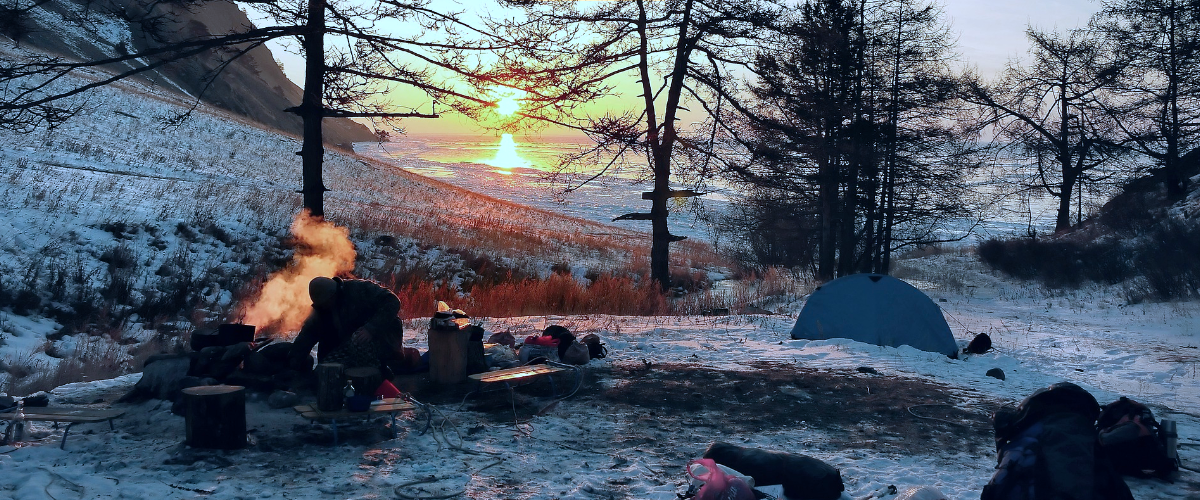Camping is a fun way to get away from the drudges of daily life and escape into the natural world. It’s also a great place to test out some survival skills, making it a particularly popular hobby for preppers. But what about the cold? Pitching a tent in the winter may sound easy enough, but cold weather camping can be lethal if not done correctly. Here’s some wisdom for anyone wanting to try cold weather camping.
Know The Exact Temperature to Expect
Winter in Wisconsin and winter in Georgia are two entirely different climates. When you want to try camping in the cold, it’s important to know the specific temperature range you’ll be experiencing. Check the weather before paying for a campsite, when preparing for the trip, and again when you leave/arrive. Keep informed. This is particularly important for our next point.
Have the Right Gear
You might have a tent and a sleeping bag, but that might not be enough. You’ll need gear equipped for the cold. Sleeping Bags will often provide a rating, saying how cold it can be and remain safe and effective. Most folks don’t have a bag rated for lower than 40 degrees F. Make sure that your bag reached lower than your expected temperature.
Make sure that your tent is also the right build. Often times, the more affordable tents are thinner and less insulating than they could be, making them less effective in the winter. Make sure you have a winter camping tent.
Another must is a sleeping pad. These are a foldable pad, either foam or inflatable, that are placed under your sleeping bag. These provide both some comfort and an insulating layer between you and the cold earth. Sleeping pads also have a rating system for how effective they are in cold climates. Make sure you have the right pad for the situation.
Stay Active and Well Fed
The body generates heat when breaking down food. It also burns calories to stay warm. Staying well-fed in the cold is important to not become more sluggish and uncomfortable than it needs to be.
It’s also important because a more effective way to stay warm is to stay active. Move around, do some work, break wood, collect branches for fire, etc. You’ll need to be well-fed to stay active to stay warm.
Wear Layers
For cold survival, there’s a general rule of three: wear an inner layer, a mid-layer, and an outer layer. The inner layer should be thin, breathable, but still insulating material. Exercise clothing and long underwear are good fits here. The middle layer should be the heat retaining clothing, flannel, fleece, and polyester are good choices. Try to avoid cotton. Lastly, the outer layer should be the protective one. Windbreaker material and the more durable sort are good choices since they will see the brunt of the outdoor action.
Ensure You Have Dry Firewood
Fires are a great way to stay warm in the cold. But it’s also harder to keep a fire going in the cold, especially if it’s wet or snowy. Bringing pre-purchased firewood, ideally that given time to warm up in the drive over, can make your day significantly easier when trying to get a fire going. You might not be able to forage for wood (either a campsite regulation or there’s simply no dry/unfrozen wood around), so bring as much wood as you anticipate needing.
Bring Extra Clothes
If your clothes get wet, they need changed out for a clean set. Water/moisture can be havoc on the body in the cold. Moisture aside, the oils and sweat from the body can also reduce the effectiveness of clothing. So bring twice as much clothing as you need, and be sure to bring a pajama set that covers the full body (and socks).
Also, keep your boots/shoes in the tent with you. If you have boot liners, keep them in your sleeping bag, that way they stay warm.
Electric Campsite VS Non-Electric and Backpacking
It’s not uncommon for campgrounds to offer electricity on certain sites. This can make a world of difference when trying to camp in cold weather. Access to electricity can open the opportunity for things like electric blankets and space heaters. Just make sure that said space heater is rated and approved for use in tents.
Keep Your Electronics Warm
Cold weather does a number on things like battery life. If you want your electronics to last, keep them in warm places, like in your pocket or in your sleeping bag. Being able to charge them at electric camp sites helps too, of course.
It’s OK to Quit
Lastly, don’t be afraid to swallow your pride, pack everything up, and go home. If the situation gets worse than expected and you’re just having a bad time, then there’s no point in forcing yourself to continue. Being safe is always the best choice.

